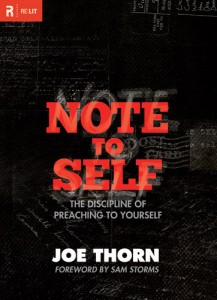 While Kristen and Bobby take some time away from blogging, several guest bloggers will appear here at MySongInTheNight.com. Today, welcome Katina French, a Sojourn Church member. Katina is a fiction writer, and the Operations Manager at Social Media Explorer.
While Kristen and Bobby take some time away from blogging, several guest bloggers will appear here at MySongInTheNight.com. Today, welcome Katina French, a Sojourn Church member. Katina is a fiction writer, and the Operations Manager at Social Media Explorer.
Recently, in reference to a sermon on Titus 2, our Community Group leader asked, “In what ways has grace made it possible to say ‘no’ to ungodliness and live self-controlled, godly lives in this present age?” For me personally, writing has been a means of this kind of grace.
Right now, I’m keeping a private journal, consisting of 2-3 pages of free writing each day. I’ve kept similar journals off and on for most of my life. This private writing is a place where I strive to be fully honest about where I am mentally, emotionally and spiritually. This kind of writing serves a number of purposes. As a writer, it keeps the words flowing. Often, we get blocked because of the things we’re not saying. Self-censorship becomes writer’s block. Having a safe place to wrestle with dark or difficult thoughts keeps those unspoken words from calcifying into a block.
As a Christian, this daily writing practice also serves as a mirror. One of my favorite books is C.S. Lewis’ Till We Have Faces. The main character, Queen Orual, writes a book that is her “complaint against the gods.” In writing her life’s story, she sees her life from a slightly removed perspective. She comes face to face with her own inconsistencies, selfishness and sin, glaring from the pages, and is humbled and repentant.
James 1:23-25 tells us that if we only hear the Word, and don’t take action on it, we’re like foolish men and women who look in a mirror and immediately forget what we look like. A daily, private journal can be one way to capture that image, so we have a clear reminder of our own need for grace and forgiveness. It helps us keep our self-image grounded in reality, instead of seeing ourselves through rose-colored glasses. The knowledge that what you do today will likely show up in your journal tomorrow can also help provide accountability. Studies show that people who journal what they eat make better nutritional choices. Keeping a journal of your daily life can have a similar effect, giving the Spirit an additional means of conviction.
It can also be a source of encouragement. Sanctification is a glacial process. Looking back at old journals, I am often encouraged to see changes the Spirit has brought about that are impossible to see without the perspective of time. I can see answered prayers I’ve long since forgotten, and be reminded of friends who God brought into my life for only a season. I can see trials that are now long over that seemed endless at the time, and see how fleeting and transient even my most turbulent emotions are.
Writing also allows me to minister to others. In writing, I can express myself more clearly. I can take the time to consider my words more carefully. I can look up scriptures to make sure what I’m sharing is consistent and biblical. Writing helps me organize my thoughts on those occasions when someone asks me for advice or counsel as a sister in Christ. Since the time of the epistles, the church has used personal writing and correspondence as a means of sharing the gospel and encouraging each other.
Recently, poet Dave Harrity of Antler lead a number of members of Sojourn in a creative writing retreat. We looked at the different ways that Christian writers, poets and creatives can worship through our writing. Writing as worship, according to Harrity, is honest, whether that honesty is reflecting praise or lament. It expresses awe in the face of the divine, and bears witness to the world as it is: created good, fallen, and in the process of being redeemed.
Writing can be a means of grace in many ways. It’s provided me with rewarding work, material provision, and brought new people into my life I wouldn’t have otherwise met. It’s given many Christian writers, poets and songwriters the joy of imitating our heavenly Father through expressing creativity.
- How has writing been a means of grace for you?
- In what ways have you responded to this grace?
- What do you value more: private writing, public writing, or personal writing (such as private correspondence)?
Wings photo above courtesy Anatoli Styf.
Follow Kat French on Twitter (@katfrench)









